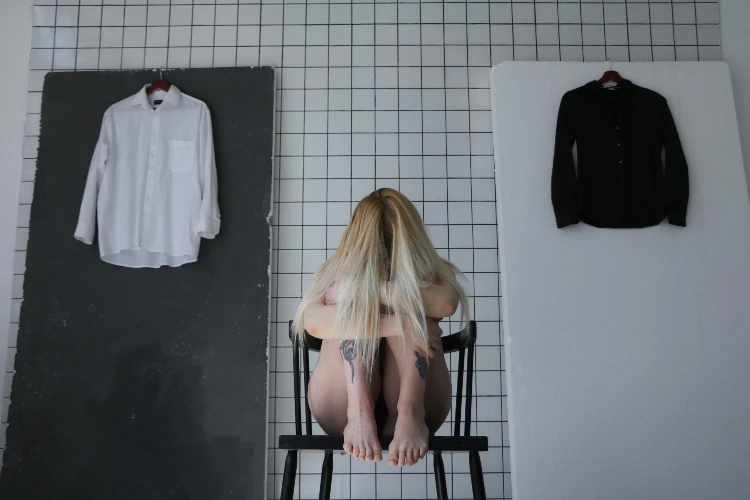Have you ever felt like you’re walking around in a fog, where the things you once loved suddenly seem dull and uninspiring? If you’ve experienced this, you might be familiar with major depressive disorder (MDD). This common mental health condition can affect anyone, regardless of age or background, and can feel like an uninvited guest that overstays its welcome. But fear not! There’s hope on the horizon. In this blog, we’ll take a light-hearted dive into the various major depressive disorder treatments available to help you navigate through the gloom and find your way back to brighter days. So, grab a cozy cup of your favorite beverage, and let’s explore!
Understanding Major Depressive Disorder
Before we jump into treatments, let’s take a moment to understand what major depressive disorder actually is. MDD is more than just feeling sad occasionally; it’s a persistent condition that can last for weeks, months, or even years. Symptoms may include feelings of hopelessness, a lack of interest in activities, changes in sleep or appetite, and difficulty concentrating. The good news is that various treatments can help you manage these symptoms and improve your quality of life.
Why Seek Treatment?
You might be wondering, “Why should I look for treatments?” Well, the answer is simple: You deserve to feel good! Seeking treatment can provide you with the tools to manage your symptoms, regain control over your life, and enhance your overall well-being. So, let’s take a closer look at the different major depressive disorder treatments available. Before we take a look at how we can walk through this by ourselves, we should also understand that we can also seek the help of a professional practitioner to help us on this journey of recovery. Click the link to seek help at Blissz Psychiatry and healthcare Services

Common Treatments for Major Depressive Disorder
Now that we’ve established the importance of treatment, let’s explore the most common approaches to tackling major depressive disorder. The great thing is that everyone’s journey is unique, and what works for one person may not work for another. That’s why it’s essential to work closely with a healthcare provider to find the right combination of treatments for you.
1. Therapy: Your Personal Cheerleader

One of the most effective treatments for MDD is therapy. Think of it as having a personal cheerleader who’s there to help you through the tough times! There are various types of therapy, but two popular ones for depression are:
- Cognitive Behavioral Therapy (CBT): This type of therapy focuses on identifying and changing negative thought patterns that contribute to your feelings of depression. By reframing those thoughts, you can develop healthier ways to cope and view the world.
- Interpersonal Therapy (IPT): IPT focuses on improving your relationships and social skills, which can help reduce depressive symptoms. Sometimes, feeling connected to others can make all the difference!
2. Medication: The Chemical Balance
Sometimes, when the brain chemistry gets a little out of whack, medication can step in to restore balance. Antidepressants are commonly prescribed for major depressive disorder and can help improve your mood and alleviate symptoms. Here are a few types of antidepressants you might encounter:
- Selective Serotonin Reuptake Inhibitors (SSRIs): These medications increase serotonin levels in the brain, which can help improve your mood. Common SSRIs include fluoxetine (Prozac) and sertraline (Zoloft).
- Serotonin-Norepinephrine Reuptake Inhibitors (SNRIs): Similar to SSRIs, SNRIs work on both serotonin and norepinephrine, providing another option for those who may not respond to SSRIs. Venlafaxine (Effexor) is a well-known SNRI.
- Atypical Antidepressants: These medications don’t fit neatly into other categories and can offer unique benefits. Bupropion (Wellbutrin) is an example of an atypical antidepressant that can help with both mood and concentration.
Keep in mind that finding the right medication may take some time, and side effects can vary. That’s why regular check-ins with your healthcare provider are crucial!
Lifestyle Changes: Small Steps, Big Impact
While therapy and medication are essential components of major depressive disorder treatments, don’t underestimate the power of lifestyle changes! Sometimes, small adjustments can have a significant impact on your mood. Here are a few ideas to consider:
- Exercise: Engaging in physical activity releases endorphins, those feel-good chemicals that can help lift your spirits. Whether it’s a brisk walk or a dance party in your living room, find a way to get moving!
- Nutrition: Eating a balanced diet can impact your mood. Focus on incorporating plenty of fruits, vegetables, whole grains, and healthy fats into your meals. Think of it as fueling your body for success!
- Sleep Hygiene: Establishing a regular sleep schedule and creating a calming bedtime routine can significantly improve your mood. Quality sleep is essential for your mental health, so don’t skimp on it!
Finding Support and Resources
When you’re navigating the world of major depressive disorder treatments, it’s essential to have a solid support system. Don’t hesitate to reach out to friends, family, or support groups. Sharing your feelings and experiences can make a world of difference.
If you’re feeling overwhelmed or unsure about your options, consider seeking help from a professional. Our reliable psychiatric mental health nurse practitioners are here to provide guidance and support tailored to your needs. They can help you explore your treatment options, whether that’s therapy, medication, or lifestyle changes.
To take the first step toward brighter days, book an appointment through our client portal at [TEXAS CLIENT PORTAL] or [WASHINGTON CLIENT PORTAL]. You don’t have to face this journey alone, and we’re here to help you find the right path toward recovery!
Embracing a Brighter Future
Major depressive disorder can be a challenging experience, but remember that treatment is available, and recovery is possible. By exploring the various major depressive disorder treatments and finding what works for you, you can pave the way for a brighter, happier future. So, take a deep breath, and know that you have the strength to overcome this challenge. Here’s to new beginnings and brighter days ahead!
